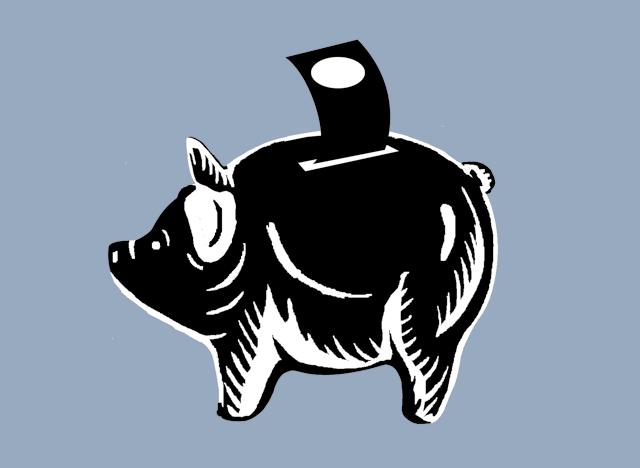Interest-free not Islamic banking is the preferred choice
The announcement by a public sector bank that it will start Islamic banking if the Reserve Bank of India (RBI), the national banking regulator, approved the idea, has created excitement among groups campaigning for this kind of financial services.
The announcement by a public sector bank that it will start Islamic banking if the Reserve Bank of India (RBI), the national banking regulator, approved the idea, has created excitement among groups campaigning for this kind of financial services.

Islamic banks are run on religious principles that consider the taking and giving of Riba (interest) as sin. Customers of Islamic banks get returns on investments through equity, lease rents and dividends. At present, there are no guidelines for such services in India.
Muslims are not well represented in the banking business. The community forms about 14% of the country’s population, but the Rajinder Sachar Committee, which reported on the social, economic, and educational conditions of the community, estimates that their share of bank deposits was 7.4% in 2005 and they took just 4.7% of loans.
Syed Zahid Ahmad, a consultant for Islamic banking — he prefers the term participatory finance — looked at the total loans and deposits at scheduled commercial banks, and the Muslim share in banking as per the Sachar Committee, and estimated that the community was underbanked by nearly Rs 200,000 crores. “This is the borrowable credit not utilised by Muslims. This loss pushes Muslims behind other communities,” he said.
“With 40% illiteracy and 31% headcounts living below poverty line, Indian Muslims are rather pulling Indian economy downwards. To develop the economy in a balanced way, we need to address the financial exclusion and economic plight among Indian Muslims,” said Ahmed
The Sachar Committee report says Muslims are a vital cog in the country’s industrial sector. The report says that 20.5% Muslim workers are in manufacturing, compared to 12.4% among Hindu upper castes. The wholesale and retail trade employs 16.8% Muslims and 13.4% Hindu upper castes. More Muslims are involved in transport and communication business than Hindus. Because they are more likely to be self-employed, Muslims have more need for credit, but many are reluctant to use banking services because of religious reasons, preferring to rely on the informal sector for finance. “Muslims, who have opened bank accounts, avoid bank credits and keep aside interest amount accrued over their deposits with intention to get rid of the interest,” said Ahmed.
Shafeeq Rahman, a doctorate in Islamic economic thought from Jamia Millia Islamia university, said the National Sample Survey Office’s survey on debt and investments in 2013 reveals that 62.69% of Muslims operated a bank account compared to 73.57% Hindus, 80.26% Christians and 96.99% Jains. Only 8.72% of Muslims had post office savings accounts compared to 14.11% Hindus. “If government introduces interest-free banking, Muslims will opt for it. Money lying without any productive benefit will come to the mainstream,” said Rahman.
Religious reasons apart, another cause for the low representation of Muslims in banking is that, because of higher default rates in loans, many lending institutions have identified localities with Muslim concentration as areas of high default and refuse to disburse credit in these places.
H Abdur Raqeeb, convenor, National Commitee on Islamic Banking and general secretary, Indian Centre for Islamic Finance said after the Prime Minister asked RBI to constitute a committee to suggest ways to make 90% Indians to be financially included, the bank set up a Committee on Medium-term Path on Financial Inclusion which submitted its report in December 2014. “This committee has one full chapter on interest-free banking with a concluding recommendation to introduce interest-free windows in conventional banks,” said Raqeeb.
The first interest-free bank in the world was set up in the 1950s and in 1975 the Organisation of Islamic Cooperation created the Islamic Development Bank, paving the way for more such institutions.
Some experts are of the opinion that these banks should be called interest-free banks and not Islamic banks. “Indian media has been using the term Islamic banking for interest-free banking. Interest-free banking should not be called as Islamic banking because Islam does not encourage establishing any bank,” said Ahmed.
Rahman agreed to this and said, “We should start interest-free banking and not Islamic banking so that all people, including non-Muslims, can use these services.”
Stay updated with all the Breaking News and Latest News from Mumbai. Click here for comprehensive coverage of top Cities including Bengaluru, Delhi, Hyderabad, and more across India along with Stay informed on the latest happenings in World News.
Stay updated with all the Breaking News and Latest News from Mumbai. Click here for comprehensive coverage of top Cities including Bengaluru, Delhi, Hyderabad, and more across India along with Stay informed on the latest happenings in World News.





